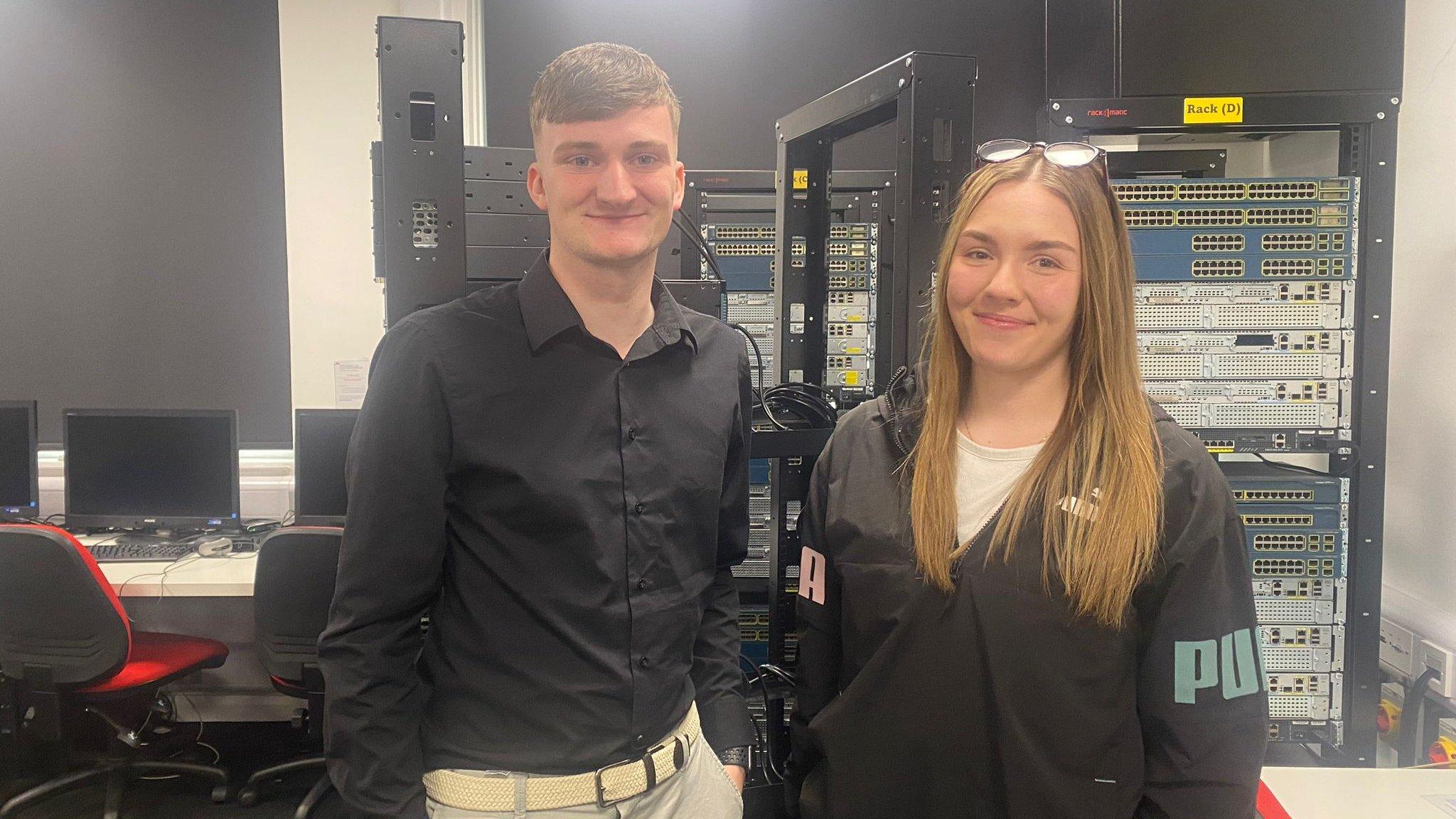University students respond to staged emergency
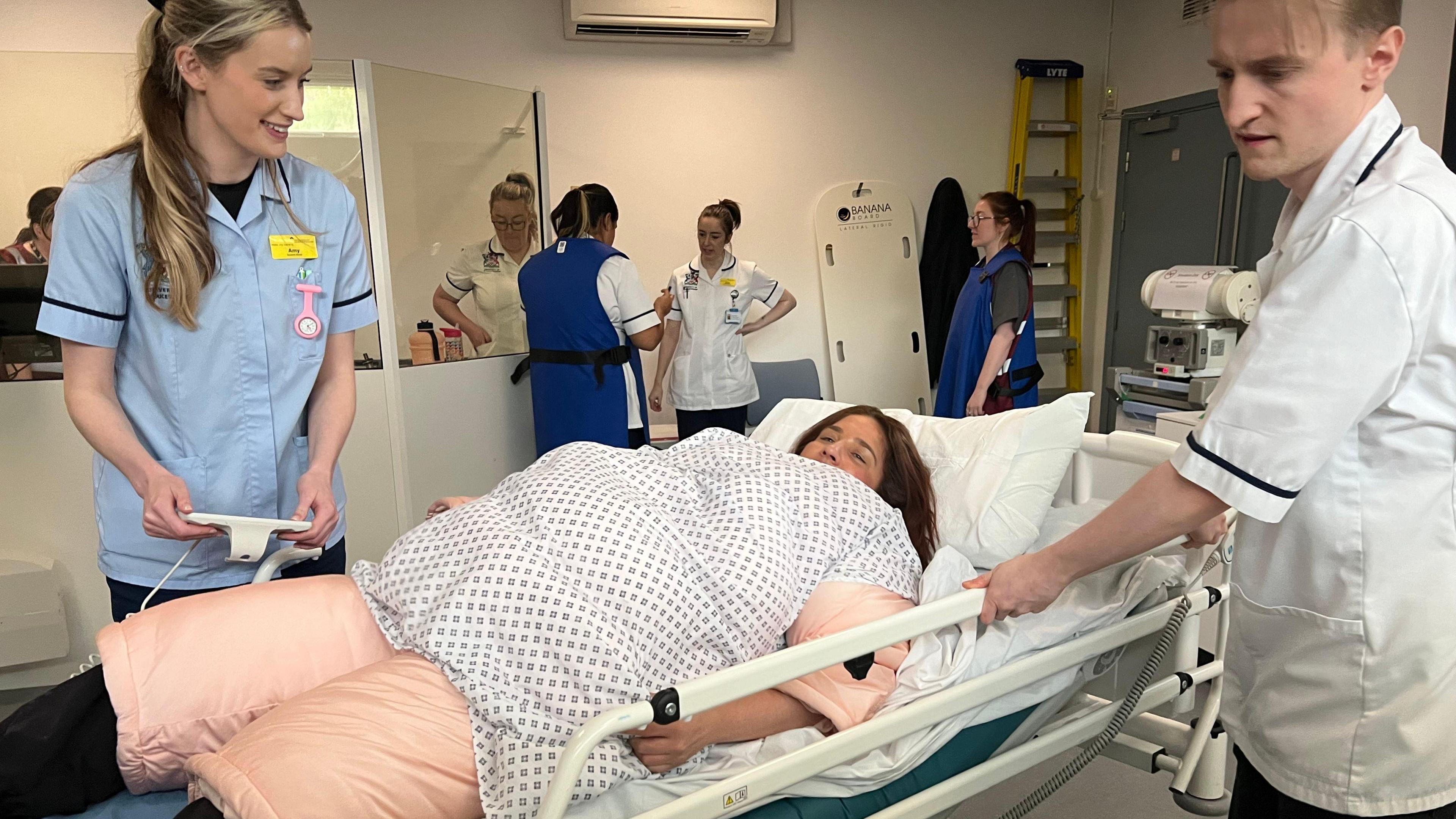
Students from the University of Gloucestershire took part in the exercise
- Published
Almost 500 students have taken part in a major incident simulation to prepare for their future careers.
Students at the University of Gloucestershire's Oxstalls Campus have been supported by police and paramedics in their response to a staged scenario involving the collapse of a stage at a concert.
Students from a number of courses came together to support "injured" audience members.
Eve Scarle and Yetti Patrick from the university said the plans provided a "safe space" for the students to practice their skills.
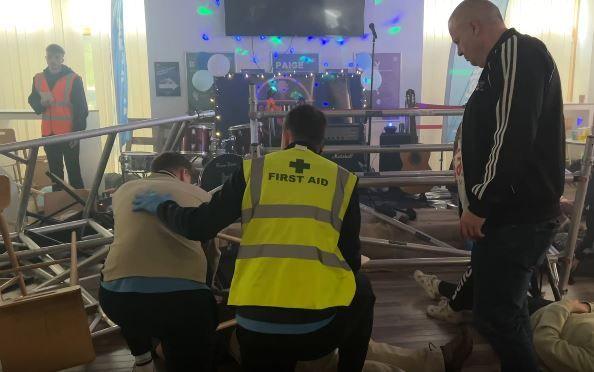
Students were tasked with responding to a stage collapse at a music festival
Drama students lay on the floor, pretending to be injured, while paramedic students responded to the incident at the Gloucester campus on Monday morning.
Associate head of school for health and social care, Eve Scarle, said she felt the incident went "really, really well".
"The major incident is a stage collapse at a music festival and the casualties that come as a result and the first response to that incident," she said.
The participants had to manage the casualties and get them out of danger and into care as quick as possible.
"The nice thing is that they can prepare for these situations in a safe space because these are the sort of things they could see when they're out in the future," Ms Scarle said.
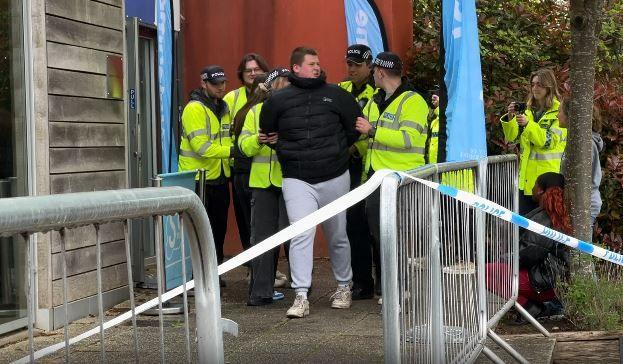
Policing students were also involved in the staged scenario
Yetti Patrick, a senior lecturer at the university, said the simulation had been "carefully planned to push students out of their comfort zones".
"We've spent the last few months preparing them to feel controlled but uncomfortable," Ms Patrick said.
"In real life, they could be in these situations where their bandwidth is going to be reduced, they're going to have to make really quick decisions, it's going to be very emotionally charged.
"At the end of the day, they are better feeling this when they are in a safe space and they've got the support around them, rather than feeling it for the very first time when they're out on the road."
Follow BBC Gloucestershire on Facebook, external, X, external and Instagram, external. Send your story ideas to us on email or via WhatsApp on 0800 313 4630.
Related topics
- Published14 March 2024
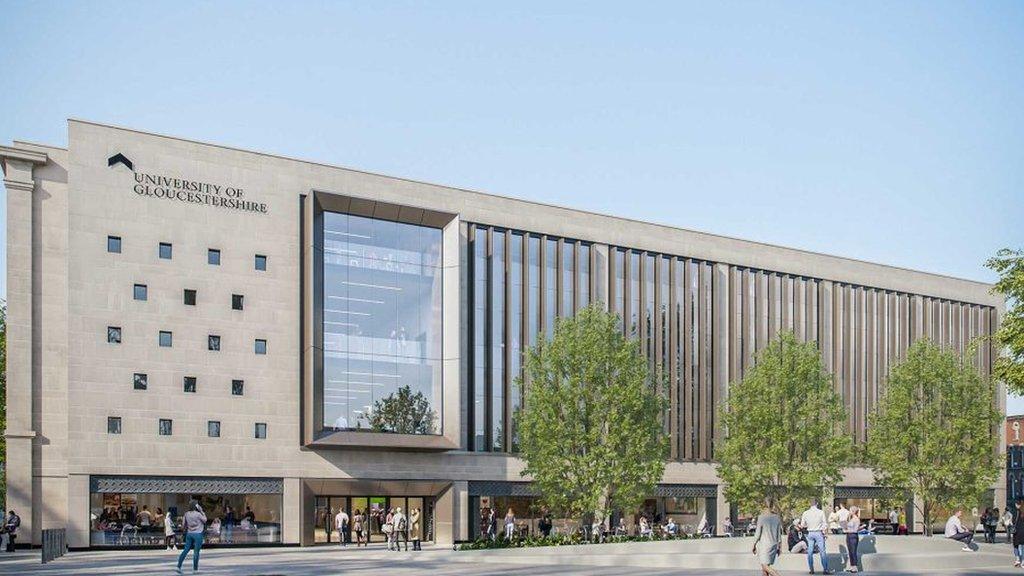
- Published17 February 2024
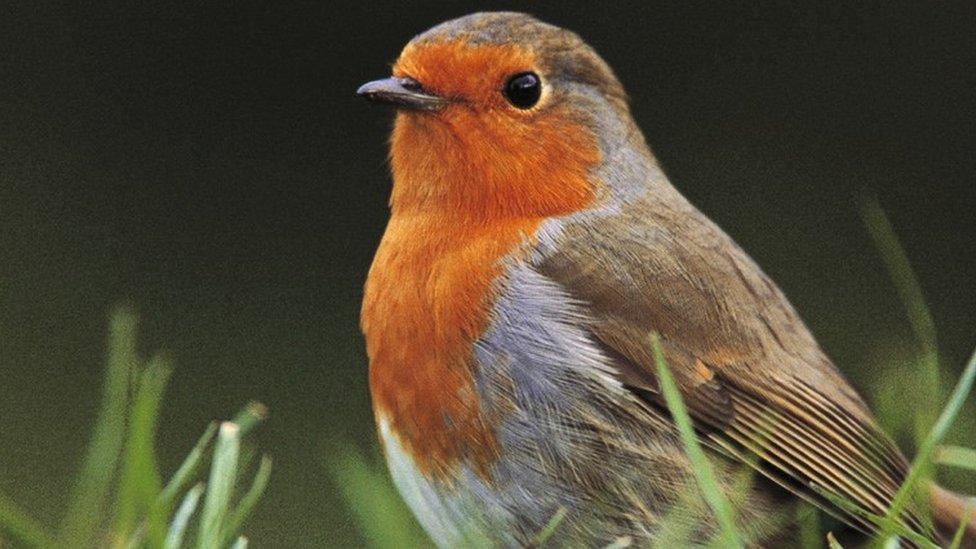
- Published7 March 2024
